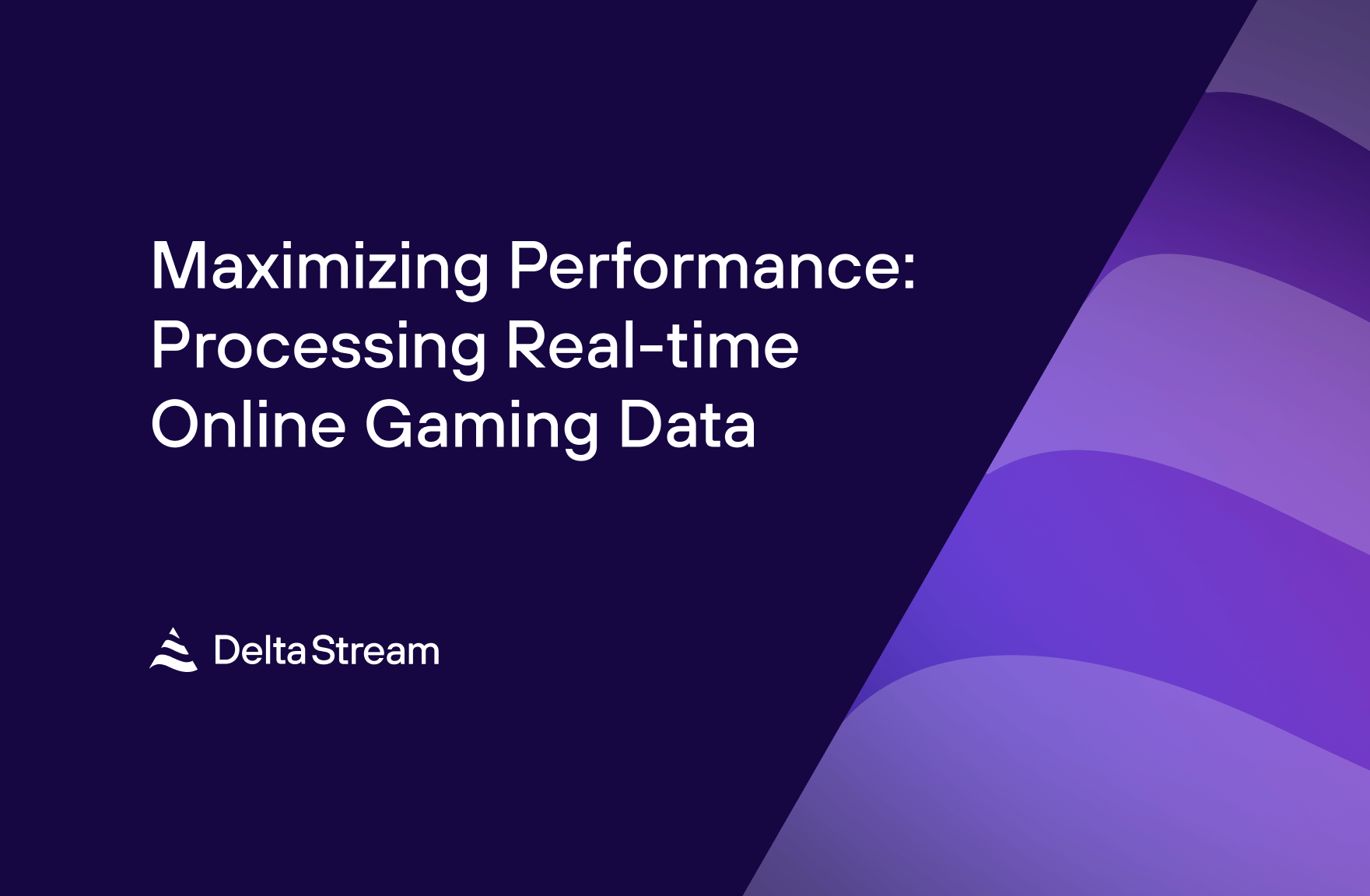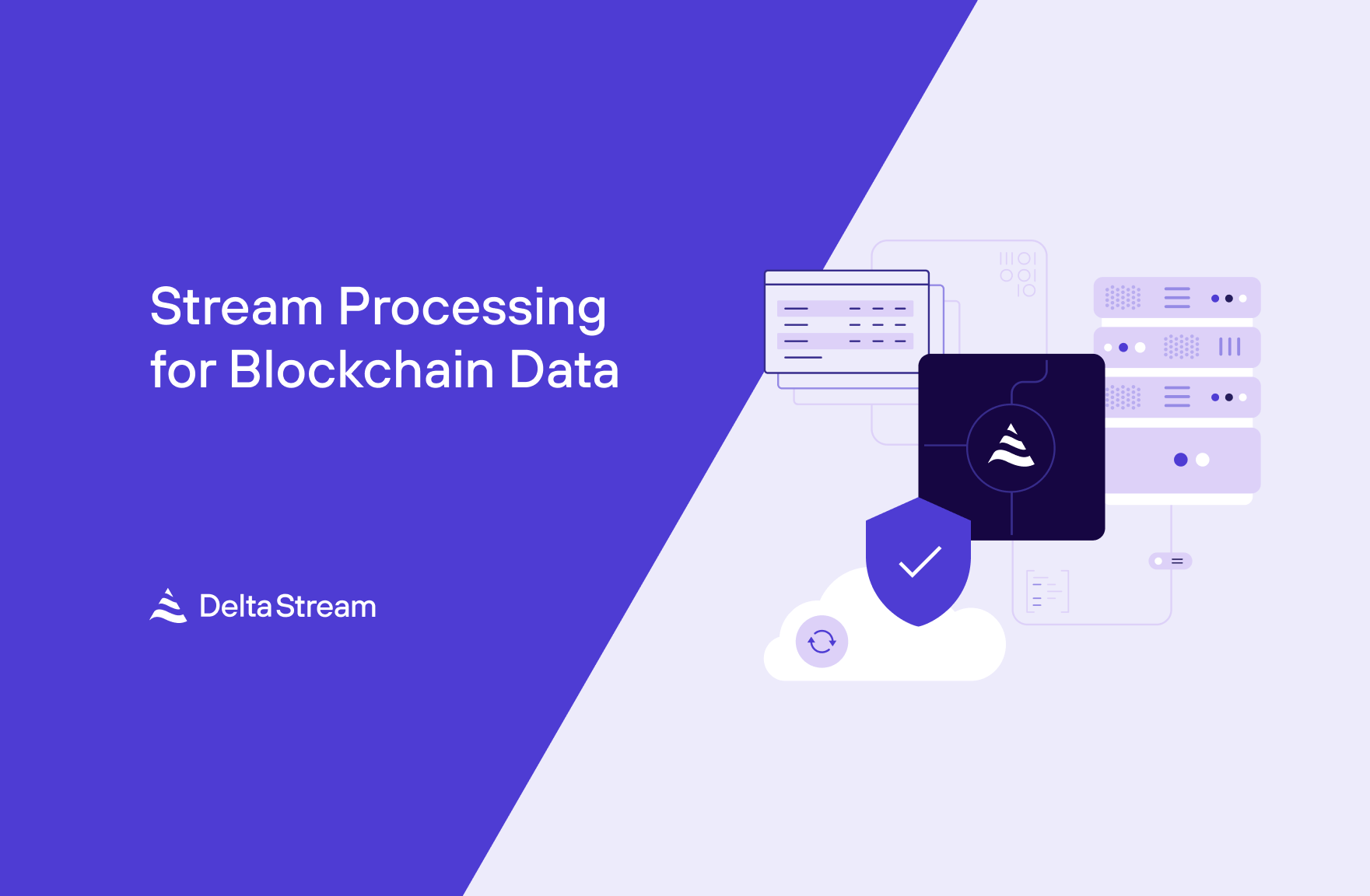06 Jun 2024
Min Read
Real-time Airline Data Pipeline for on time Flight Status with SQL
Air travel is one of the most popular modes of transportation, but it doesn’t come without the risk of flight delays from weather, technical malfunctions, or other reasons. These delays, while most of the time is out of the airline’s control, can be frustrating for passengers who only wish for stress-free travel. Accurate and timely communication of flight delays, gate changes, or other status updates are essential for maintaining customer satisfaction. To achieve this, airlines need a robust data platform that can handle flight status updates in real-time.
In this post, we will show off how DeltaStream can be used to easily set up streaming pipelines that process real-time airline data. As a fully managed service powered by Apache Flink, users are given the capabilities of Flink without needing to deal with the complexities of running and scaling Flink jobs. In fact, Flink is just an implementation detail, as users can simply write SQL queries to set up their stream processing pipelines. For our example, we will transform flight status to create an always up-to-date view of current flight statuses.
Raw Source Data for Airline Flight Status
For our example, we have 2 raw source streams:
flights: flight information, including scheduled departure and arrival times.flight_updates: updates to flight status, including a new departure time.
In DeltaStream, we can create Relations to represent these data:
Use Case: Create an Always Up-to-Date View of Current Flight Status
In order to get the latest complete flight status information, we need to enrich our flight_updates Stream by joining it with our flights Changelog. The result of this join will be a stream of flight updates which include the latest departure and arrival times. We can achieve this with the following query:
We want to eventually materialize these update statuses into a view, using flight_id as the primary key. So, we can define a Changelog that is backed by the same data as the enriched_flight_updates Stream. Notice in the WITH clause of the following statement that the topic parameter is set to enriched_flight_updates.
Now, the enriched_flight_updates_log Changelog will contain all flight updates with the flight information that the original flight_updates Stream was missing. However, only updates are currently included and there are no events for flights that don’t have delays or updates in this Stream. To fix this, we can write an INSERT INTO query to generate updates from the flights. This will ensure that our enriched_flight_updates_log Changelog will capture all the statuses of all flights.
Finally, we can materialize our enriched_flight_updates_log into a materialized view that users can query at any time and get the most up-to-date information. Since our enriched_flight_updates_log Changelog has the primary key of flight_id, the view will be updated with UPSERT mode on the flight_id key. If we had instead created our materialized view from the enriched_flight_updates Stream, then the view would be created in append mode where each event is a new row in the view. Using upsert mode, we can update the existing row, if any, based on the Changelog’s primary key.
After creating our materialized view, we can query it at any moment and get the latest flight statuses. The view can be queried directly from the DeltaStream console or CLI, as well as through the DeltaStream REST API for other applications to access programmatically. Let’s look at some sample input and output data below.
Input for flights:
Input for flight_updates:
Query flight_status_view:
Output results:
Conclusion
When it comes to air travel, travelers have an expectation that airlines will communicate flight delays and flight status effectively. In this post, we demonstrated a simple use case of how airlines can set up real-time data pipelines to process and join flight and flight updates data, with just a few simple SQL queries using DeltaStream. As a fully managed and serverless service, DeltaStream enables its users to easily create powerful real-time applications without any of the overhead.
If you want to learn more about DeltaStream, sign up for our free trial or reach out to us.



